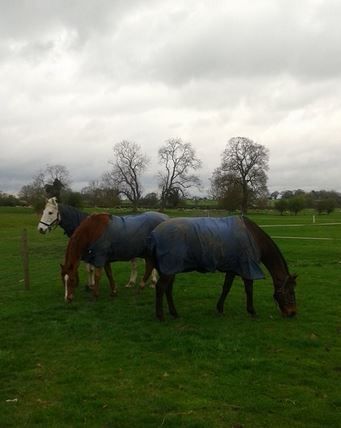 Horses have evolved living in the wild and they have developed their own ways of surviving during the cold, wet and windy months, so as an owner there is not really that much that you need to do to ensure their survival during winter. Of course that is not to say that you cannot do a little more to ensure that they remain healthy and comfortable during this time. One of the most obvious things you can do to aid your horse during the winter months is adjust its food accordingly.
Horses have evolved living in the wild and they have developed their own ways of surviving during the cold, wet and windy months, so as an owner there is not really that much that you need to do to ensure their survival during winter. Of course that is not to say that you cannot do a little more to ensure that they remain healthy and comfortable during this time. One of the most obvious things you can do to aid your horse during the winter months is adjust its food accordingly.
The best way of providing your horse with this additional food is not to increase its portion size, but rather to increase the frequency of its feed; so instead of feeding it 3 times a day, feed it 5. Calories are what are burned to keep horses warm, so if you're looking for a calorie-rich food source choose one with a high lucerne – also known as 'Alfalfa' – content; as it contains more calories than grass.
As you're increasing its food intake, for the sake of its digestion you will also want to increase the amount of water is has access to. It is recommended that the water a horse drinks during the winter is slightly warmer than the water it is typically given; but this only preferred, it is by no means a necessity.
Naturally, it being winter and all, you will want to look out for ice, as any amount of water on a horse's body can quickly freeze and cause problems. One of worst areas for this is their hooves, which can get covered in water whilst they're walking around and whilst they are drinking. Any ice that is allowed to form on their hooves will force a horse to, essentially, walk on tiptoes; which will damage the tendons, ligaments and muscles in its legs.
It is imperative that no mud is left to linger on a horses leg, as mud contains water which will freeze and at the very least cause extreme discomfort to the animal. Additionally, mud is a breeding ground for bacteria and fungi, either of which could lead to infections that the body would then have to spend energy fighting off, rather than using it to keep the body warm.
It is because of the dangers that come with both ice and mud (of which there are many more than those which we have covered above) that we would suggest checking your horse a minimum of twice a day, but obviously the more you can check the better.